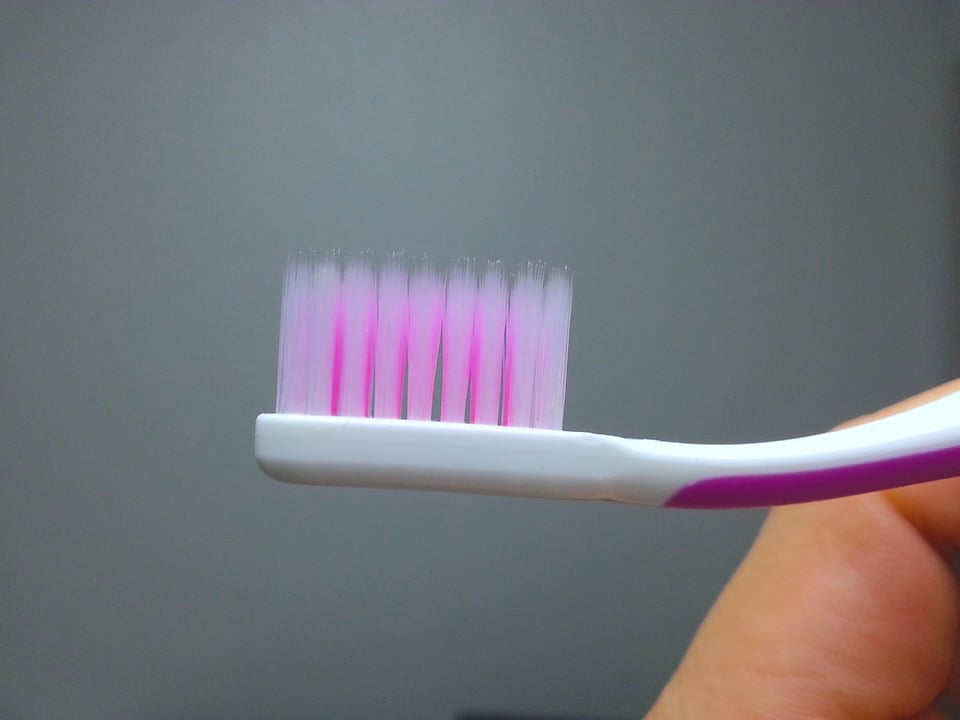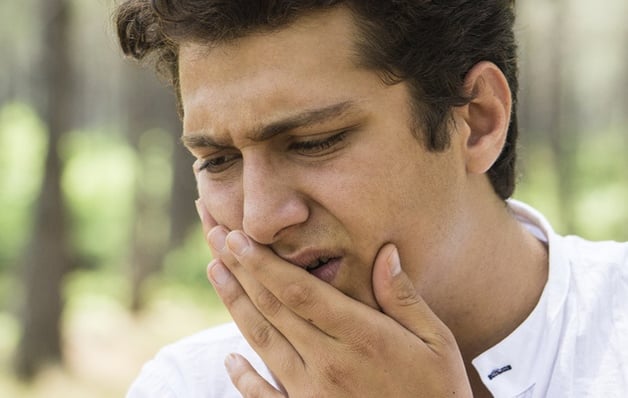
We have enough problems and complications to deal with every day. No one needs issues with their teeth to add to the mix.
If you’re facing any of the following nagging dental problems, it’s important not to rely strictly on self-diagnosis and treatment. While the list that follows contains several valid points and tips that could be helpful, they ultimately can’t take the place of a professional dental exam or treatment plan. In some cases, these seemingly minor symptoms may actually be signs of something much more serious than what may appear.
The good old-fashioned toothache

Toothaches can be a sign of a more severe issue and could worsen if left untreated.
A nagging toothache can be miserable to endure. It can interrupt eating and sleeping and make getting through the day a challenge.
The fact is, there’s nothing “good” about the old-fashioned toothache. Any kind of pain in a tooth indicates something is wrong.
While the automatic conclusion you may jump to is that your toothache indicates a cavity or some other form of tooth decay, there are several other potential causes for a toothache:
- Depending on your age, a tooth may be coming in (erupting)
- Infection in or around the tooth and gum (including abscesses)
- Gum disease
- Trauma to the tooth (a fracture or deep chip)
- Grinding of the teeth (bruxism)
- Involuntary jaw clenching
- An abnormal bite (over or underbite)
And, of course, it could be a cavity. There are also some medical conditions elsewhere in the body that may have tooth, gum, or jaw pain as a symptom, such as angina.
In all cases, if you’re dealing with a chronic toothache, the simplest and most effective option is to contact your dentist and make an appointment as soon as possible. If it’s nothing to worry about, they can put your mind at ease. If it’s more than that, they can arrange a treatment plan that’s right for you.
Sensitivity to cold, heat, or sweets
"The fact is, there’s nothing “good” about the old-fashioned toothache. Any kind of pain in a tooth indicates something is wrong."
It’s very common for teeth to be highly sensitive to extreme temperatures. Just drinking ice water or coffee, or taking a bite of ice cream could be enough to bring tears to someone’s eyes if the sensitivity is acute enough.
What does a sensitivity to temperature or sweets mean?
Generally, it’s caused by the exposure of dentin (the porous material making up most of every tooth) directly to the food you put in your mouth. This occurs when the protective layer of enamel wears down or breaks free, either due to tooth decay, over-brushing, or age.
When the enamel is missing, even in a very small spot, it allows whatever is in your mouth to directly reach the nerves inside the tooth. The more extreme the sensation (of heat, cold, or sweetness) the more painful the resulting feeling.
Routinely eating highly acidic foods, using overly harsh mouthwash, and brushing with a very hard bristled brush can all contribute to loss of enamel, increasing tooth sensitivity.
If you already know you have chronic sensitivity and the cause behind it, your best option is to try to limit or eliminate those foods or circumstances that cause the most pain and regularly use toothpaste specially formulated to lessen sensitivity.
However, if you experience brand new sensitivity or pain that does not have an obvious explanation, see your dentist as soon as possible to diagnose the cause of the sensitivity.
Bruxism (tooth grinding)
Bruxism is a potentially painful habit that often occurs while we sleep or during especially stressful periods throughout the day or week. It can result in the loss of enamel, increasing tooth sensitivity, as well as soreness in the teeth, gums, and jaw muscles.
Bruxism is extremely common, with 1 in 3 adults in the U.S. suffering from some level of the condition. About 10% of this number, around 15 million people, grind their teeth often and aggressively enough to do serious dental damage if left untreated.
The effects of bruxism include:
- Advanced tooth decay
- Chronic temporomandibular joint (TMJ) pain or stiffness
- Ear pain
- Dislocation of the jaw or clicking/scraping noises accompanied by pain
While reducing stress, avoiding caffeine and alcohol, and other practical steps can be taken to help reduce the severity and regularity of teeth grinding for most people, the most effective method of protecting the teeth is to wear a custom mouth guard overnight.
These custom mouth guards fit around the top or bottom teeth, forming a thick barrier of rubbery material between the teeth that is designed to withstand the constant pressure and grinding motion of bruxism without allowing the teeth to actually touch each other, therefore eliminating the damaging effects of the habit.
In all cases, seeing your dentist regularly will help monitor, treat, or even cure these nagging dental problems. Remember, no situation is too insignificant to bring to your dentist’s attention. Looking for dental discounts to help you afford your next dental visit? Explore an inexpensive option for keeping up with your semi-annual preventive visit to the dentist with a dental savings card.
